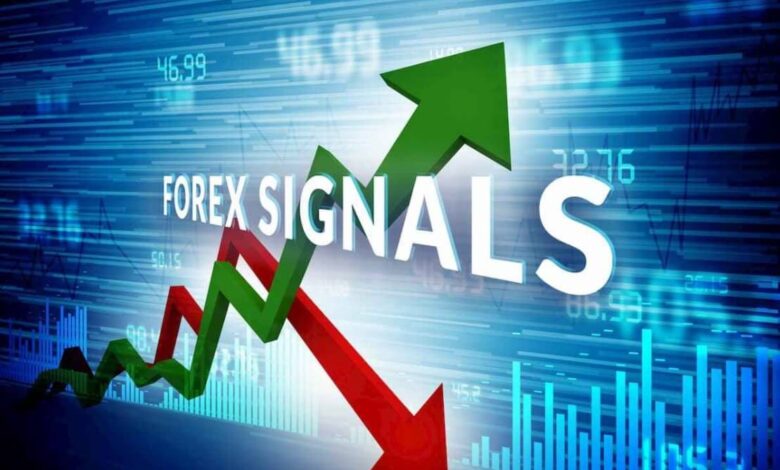Forex Signals Explained: A Key to Consistent Profits

Forex signals are essential tools for traders looking to enhance their trading performance and achieve consistent profits in the currency markets. This article will delve into what forex signals are, their benefits, and how they can be used effectively. We will explore six key headings that will guide you in understanding and utilizing forex signals to your advantage.
- Understanding Forex Signals
Forex signals are trade recommendations that provide traders with insights on when to buy or sell currency pairs. These signals can be generated through various methods, including:
- Technical Analysis: Utilizing chart patterns, indicators, and historical price movements to forecast future trends.
- Fundamental Analysis: Analyzing economic data, news events, and geopolitical factors that can influence currency values.
- Automated Systems: Employing algorithms and trading robots to analyze data and provide trade alerts based on market conditions.
Typically, a forex signal includes specific details, such as:
v The currency pair (e.g., EUR/USD)
v Buy or sell recommendation
v Entry price
v Stop-loss and take-profit levels
forex signals simplify decision-making and help traders navigate the complexities of the forex market, making them especially valuable for beginners and busy traders.
- Benefits of Using Forex Signals
Incorporating forex signals into your trading strategy can yield several advantages:
- Enhanced Decision-Making
Forex signals provide traders with actionable insights, helping them make informed decisions. By relying on expert analysis, traders can reduce the emotional aspect of trading and follow a structured approach.
- Time-Saving
For those who lack the time to analyze the market continuously, forex signals can save significant time. Traders receive alerts and recommendations without having to monitor charts and news constantly.
- Learning Opportunities
Forex signals offer a learning platform for beginners. By following signals and analyzing the reasoning behind them, novice traders can gain insights into market dynamics and improve their trading skills over time.
- Risk Management
Quality forex signals come with recommended stop-loss and take-profit levels, enabling traders to manage their risk more effectively. This guidance helps prevent significant losses and secures profits.
- Types of Forex Signals
Forex signals can be categorized into various types, each catering to different trading styles and preferences:
- Manual Signals
Manual forex signals are generated by experienced traders or analysts who monitor market conditions and provide recommendations based on their expertise. These signals often reflect real-time market sentiment and are valuable for active traders.
- Automated Signals
Automated forex signals are generated by trading algorithms that analyze market data and identify potential trading opportunities. These signals are ideal for traders who prefer a hands-off approach or cannot monitor the markets continuously.
- Social Trading Signals
Social trading platforms allow traders to follow and replicate the trades of successful traders. These platforms provide real-time signals based on the actions of experienced traders, enabling beginners to learn from their strategies.
- Choosing the Right Forex Signal Provider
Selecting a reliable forex signal provider is crucial for success. Here are some factors to consider:
- Track Record and Performance
Look for a signal provider with a proven history of accurate signals. Check their past performance, including win rates and risk-to-reward ratios. Transparency in reporting is essential to assess the effectiveness of their signals.
- User Reviews and Feedback
Research user reviews and testimonials to gauge the experiences of other traders. A reputable signal provider will have positive feedback and a strong reputation within the trading community.
- Delivery Methods
Ensure that the provider delivers signals through convenient channels, such as email, SMS, or mobile apps. Timely delivery of signals is critical for executing trades effectively.
- Cost and Subscription Plans
While some forex signal providers offer free signals, paid services often deliver higher quality and more accurate recommendations. Evaluate the cost against the features and performance of the signals to determine their value.
- Best Practices for Using Forex Signals
To maximize the benefits of forex signals, traders should adhere to the following best practices:
- Validate Signals with Personal Analysis
Even if you receive signals from a reputable provider, it’s essential to perform your analysis to confirm the signal’s validity. Cross-reference the signals with your technical or fundamental analysis to increase your confidence in executing trades.
- Implement Risk Management Strategies
Always use stop-loss orders and manage your position sizes to protect your trading capital. Following the recommended stop-loss and take-profit levels provided with signals can help minimize risks.
- Keep a Trading Journal
Maintaining a trading journal allows you to track your trades and the outcomes of the signals you followed. This practice helps you identify patterns, learn from mistakes, and refine your trading strategy.
- Avoid Overtrading
Receiving multiple signals can tempt traders to act on every opportunity. However, overtrading can lead to increased transaction costs and higher risk exposure. Be selective and focus on high-quality signals that align with your trading strategy.
- The Future of Forex Signals
The forex signal industry is evolving, and several trends are shaping its future:
- AI and Machine Learning
Artificial intelligence and machine learning are being increasingly integrated into forex signal generation. These technologies can analyze vast datasets and adapt to changing market conditions, providing more accurate signals.
- Enhanced User Experience
Signal providers are focusing on improving user experience through mobile applications and real-time notifications. This accessibility allows traders to receive alerts and act on signals quickly, even when they are on the go.
- Social Trading Integration
The growth of social trading platforms is changing how traders interact with forex signals. By following successful traders and replicating their strategies, newcomers can benefit from experienced insights and improve their trading performance.
- Automation and Execution
The integration of forex signals with automated trading systems allows traders to execute trades based on signals without manual intervention. This hands-free approach can improve efficiency and eliminate emotional trading decisions.
Conclusion
Forex signals are invaluable tools for traders seeking consistent profits in the currency markets. By understanding what forex signals are, their benefits, and how to choose the right providers, traders can enhance their decision-making processes and trading strategies.
Adhering to best practices, such as validating signals, implementing risk management, and maintaining a trading journal, can significantly improve your trading outcomes. As the forex signal landscape evolves with technological advancements, staying informed about emerging trends will enable you to leverage these tools effectively.
With the right approach, forex signals can be a powerful ally in your quest for consistent profits, helping you navigate the complexities of the forex market with confidence and skill.




